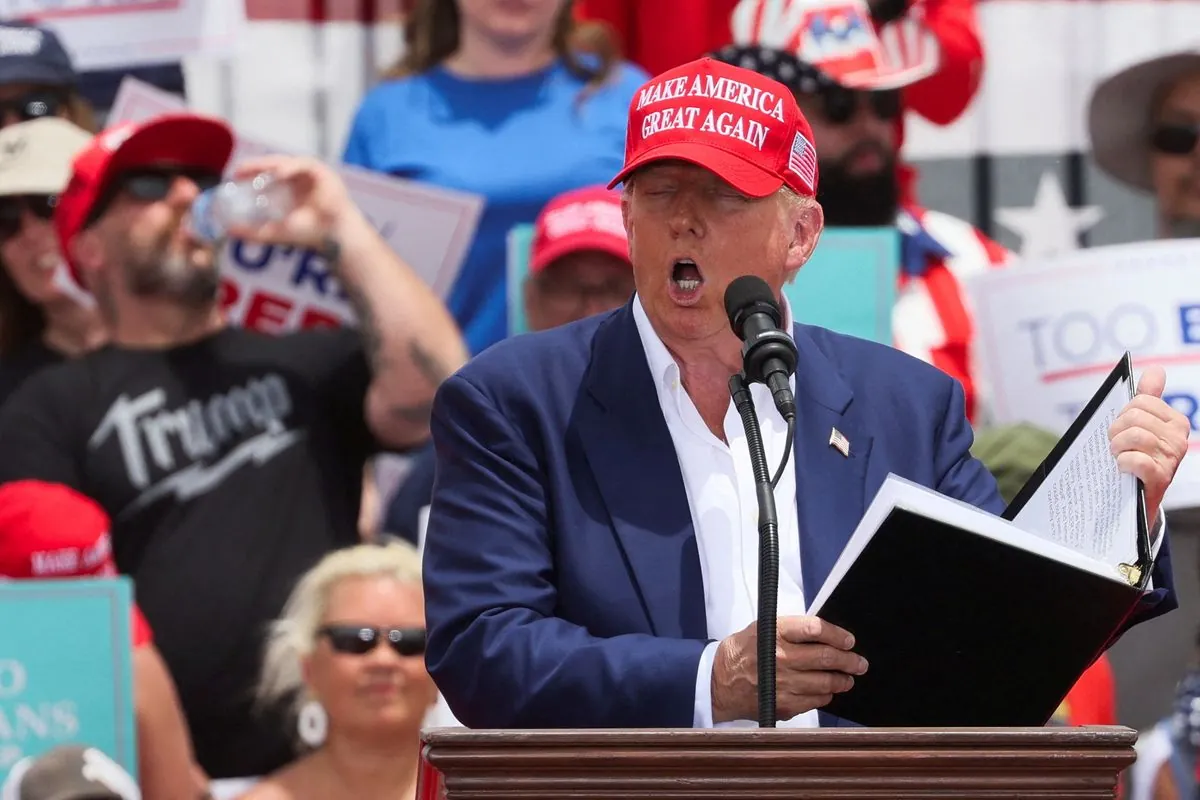Trump's False Claims Spark Controversy Within Republican Party
Former President Trump's promotion of unsubstantiated theories about Haitian immigrants and Kamala Harris has caused internal strife among Republicans, raising concerns about the party's messaging ahead of the 2024 election.

In recent days, Donald Trump has sparked controversy within the Republican Party by promoting unsubstantiated claims during and after a presidential debate. The former president's statements, particularly those regarding Haitian immigrants and Vice President Kamala Harris, have led to internal discord among party members.
During the debate, which took place on September 10, 2024, Trump repeated a baseless assertion about Haitian immigrants in Springfield, Ohio. He claimed that these immigrants were consuming residents' pets, a statement that local authorities have since refuted. This claim originated from social media and was initially amplified by Senator JD Vance of Ohio.

Springfield, a city of approximately 60,000 residents, has experienced an influx of an estimated 15,000-20,000 Haitian immigrants granted Temporary Protected Status (TPS) due to ongoing political instability in Haiti. While the immigrant workforce has boosted certain sectors of the local economy, some services have faced challenges in accommodating the expanded population.
Trump's comments have elicited varied responses from within the Republican Party. Some members, such as Senator Lindsey Graham of South Carolina, expressed hope that "this problem gets resolved." Others, like Senator Thom Tillis of North Carolina, were more direct in their criticism, referring to far-right activist Laura Loomer as a "crazy conspiracy theorist" and suggesting that her association with Trump could harm his re-election chances.
"If you're on the ballot this fall, you have to be nervous about this type of distraction."
The former president has also made unsubstantiated claims about Vice President Kamala Harris, suggesting she received debate questions in advance and used hidden communication devices during the event. These allegations have further fueled tensions within the party.
Some Republicans have urged a shift in focus towards substantive policy discussions, particularly on issues where the party believes it holds an advantage, such as immigration. However, Trump has defended his statements and associations, including his relationship with Loomer, who has a history of promoting conspiracy theories.
The spread of fringe theories within the Republican Party has raised concerns about the impact on political discourse and public perception. Critics argue that these claims perpetuate harmful stereotypes and could potentially incite violence, as evidenced by a recent bomb threat in Springfield that used "hateful language" towards Haitians.
As the November 5, 2024, presidential election approaches, the Republican Party faces internal debates about its messaging strategy. While some members advocate for addressing policy issues, others continue to embrace and amplify controversial claims, reflecting a broader shift in the party's approach to political communication.
The ongoing controversy highlights the challenges faced by the Republican Party in balancing its appeal to different segments of the electorate while maintaining a coherent message in the final months of the campaign.


































